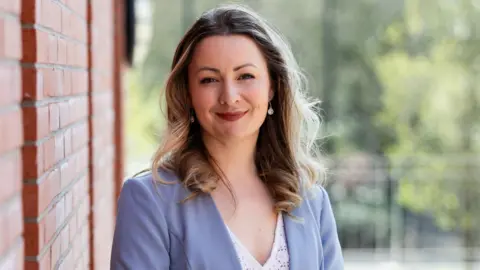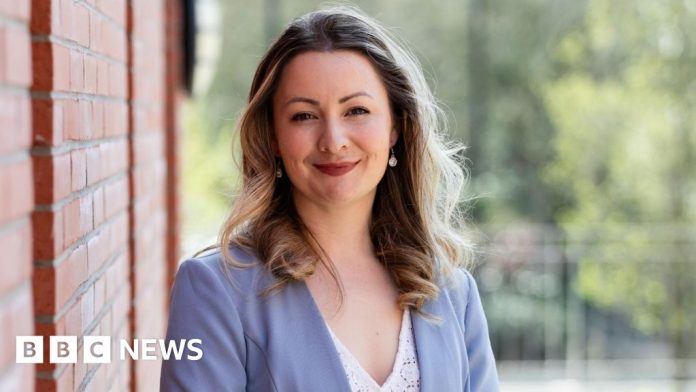Could video games help stroke survivors regain movement?
Marie-Louise Connolly
BBC News NI health correspondent

 Queen’s University Belfast
Queen’s University Belfast
A Queen’s University Belfast (QUB) neuroscientist is calling for stroke survivors to take part in research to explore whether a wireless brain-powered computer game can help people regain movement in their arms.
Dr Kathy Ruddy said those taking part will be asked to wear a simple headset that reads brain activity while they imagine moving their affected arm.
Stroke is one of the leading causes of adult disability in Northern Ireland with up to 80% of survivors experiencing arm or hand weakness.
About 3,000 people are admitted to hospital each year having experienced a stroke, with 39,000 stroke survivors recovering at home, many of whom require support.
According to the charity Chest, Heart and Stroke, this makes day-to-day tasks, including getting dressed, cooking or writing, extremely difficult.
The team at QUB has said the research is giving hope to those who’ve survived a stroke but are limited due to their movement or speech being affected.
Survivors can be supported by different types of rehabilitation including through playing games.
How does the study work?
Dr Ruddy said brains are adaptable and through a process called neuroplasticity, other parts of the brain can take over lost functions.
The team are looking for about 50 people who have suffered a stroke to take part and use the headsets.
“The brain signals are picked up and used to control a computer game,” Dr Ruddy explained.
“This form of ‘motor imagery’ activates the same brain areas as real movement and it may help keep these body parts healthy and active after a stroke, even when actual movement isn’t yet possible.”
The project is being funded by Northern Ireland Chest, Heart and Stroke.
Dr Ruddy said by “incorporating different types of neural signals into brain-controlled games, the team can train human participants to modify specific aspects of their neurophysiological function”.
Stroke survivors, carers and healthcare professionals are invited to come along to an event at Riddel Hall in Stranmillis on Thursday 7 August from 11:00 BST until 15:00 to find out more about the research.
